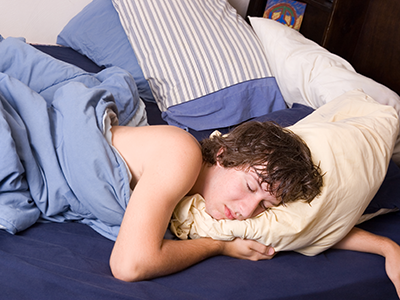Teen bedwetting, also known as nocturnal enuresis, is a common but often misunderstood issue that affects many adolescents. It can be a source of embarrassment and shame, leading to negative impacts on mental health. Breaking the stigma surrounding teen bedwetting is crucial in order to provide support and understanding to those who are struggling with this condition.
The Link Between Teen Bedwetting and Mental Health
Teen bedwetting is more than just a physical issue; it can also have a significant impact on mental health. The stigma and shame associated with bedwetting can lead to a range of emotional and psychological challenges for teenagers, including:
Anxiety and Stress
- Teens who wet the bed may experience anxiety and stress about when it will happen next, especially in social situations such as sleepovers or school trips.
- This constant worry can take a toll on their mental well-being and overall quality of life.
Low Self-Esteem
- Bedwetting can make teenagers feel different or abnormal compared to their peers, leading to low self-esteem and feelings of inadequacy.
- These negative emotions can impact their confidence and social interactions, further exacerbating their mental health struggles.
Depression
- Over time, the ongoing challenges of dealing with bedwetting can contribute to feelings of depression in teenagers.
- Depression can have serious consequences on mental health if left unaddressed, affecting various aspects of their lives.
Breaking the Stigma Surrounding Teen Bedwetting
It is essential to break the stigma surrounding teen bedwetting in order to support teenagers who are dealing with this issue. By increasing awareness and understanding, we can help reduce the negative impact on their mental health and well-being. Here are some ways to break the stigma:
Educate and Raise Awareness
- Providing education about teen bedwetting can help debunk myths and misconceptions surrounding the issue.
- Raising awareness through open discussions and resources can empower teenagers to seek help and support without feeling ashamed.
Encourage Open Communication
- Creating a safe and supportive environment where teenagers feel comfortable discussing their bedwetting experiences is crucial.
- Encouraging open communication with parents, healthcare providers, or therapists can help teenagers feel heard and understood.
Offer Support and Resources
- Connecting teenagers with support groups, online forums, or counseling services can provide them with the resources they need to cope with bedwetting and its impact on mental health.
- Offering practical solutions and treatment options can also empower teenagers to manage their condition effectively.
Seeking Help for Teen Bedwetting and Mental Health
If you are a teenager struggling with bedwetting and its effects on your mental health, know that you are not alone. Seeking help and support is the first step towards breaking the stigma and improving your well-being. Here are some ways to get help:
Talk to a Healthcare Provider
- Consulting a healthcare provider, such as a doctor or urologist, can help identify any underlying medical conditions contributing to bedwetting.
- They can also recommend treatment options, such as medication or bedwetting alarms, to address the issue effectively.
Consider Therapy or Counseling
- Therapy or counseling can be beneficial for teenagers dealing with the emotional impact of bedwetting on their mental health.
- A therapist can provide coping strategies, support, and a safe space to explore and process their feelings about bedwetting.
Explore Support Groups
- Joining a support group for teenagers with bedwetting can help you connect with others who understand what you are going through.
- Sharing experiences, tips, and encouragement with peers can provide a sense of community and reduce feelings of isolation.
Breaking the stigma surrounding teen bedwetting is a crucial step towards supporting teenagers who are struggling with this condition. By increasing awareness, encouraging open communication, and offering support, we can help teenagers overcome the negative impact on their mental health and well-being.

